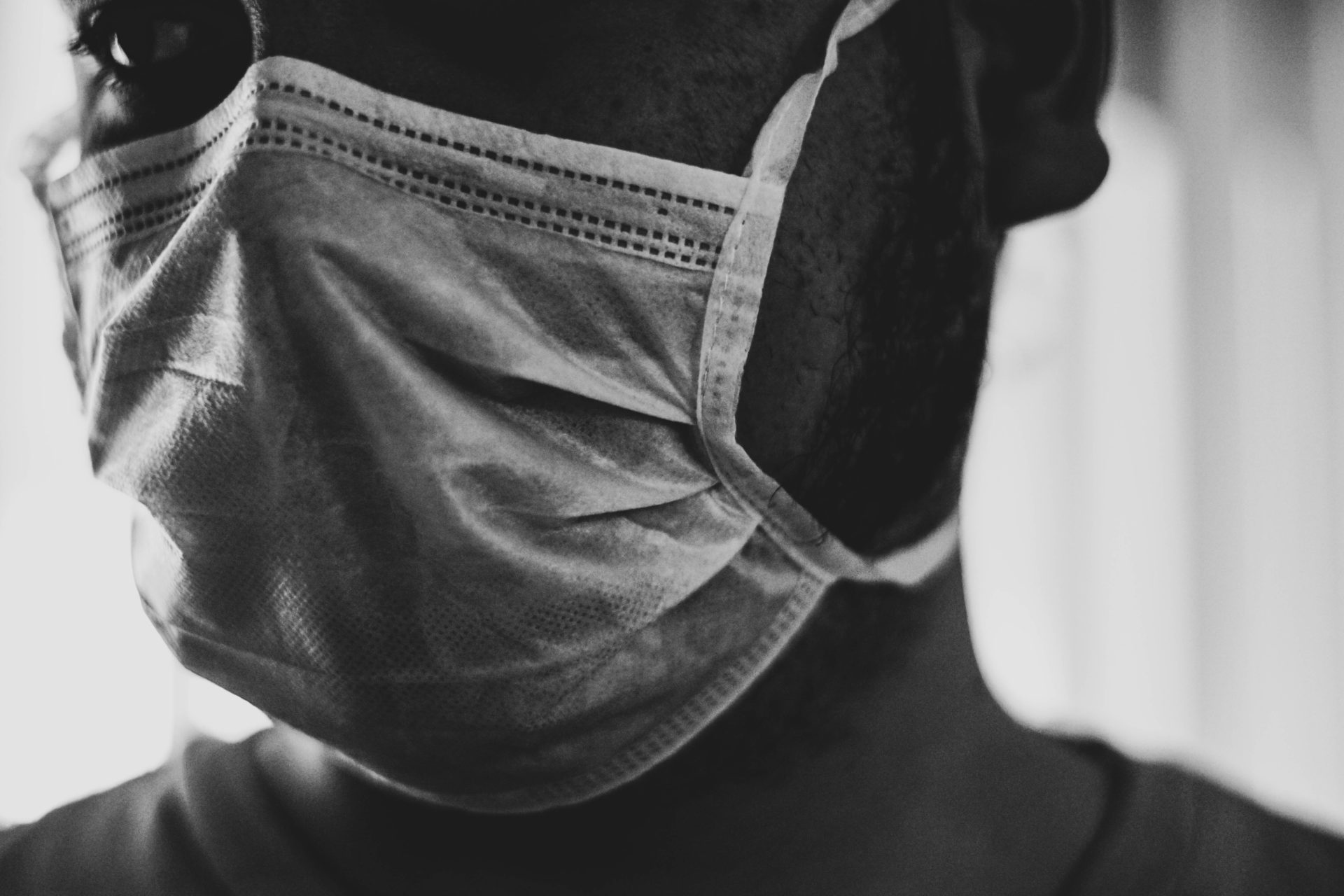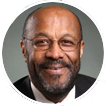
Photo by Tai’s Captures on Unsplash
Lethal neglect—structural, intentional social neglect and the disproportionate COVID-19 mortality rate of African Americans

Dr. Marvin McMickle
April 28, 2020
As we all cope with the effects of the coronavirus, it is disheartening to hear how African Americans are dying from virus-related causes at a staggeringly disproportionate level. In my hometown of Chicago, African Americans are about 32% of the population, but they account for 72% of the deaths associated with COVID-19. In Cook County (which includes Chicago), African Americans make up 23% of the population, but they account for 58% of the COVID-19 related deaths. The same pattern appears in other states and major cities as well. In Louisiana, African Americans are 32% of the population, but they constitute 70% of COVID-19 related deaths. In Michigan, African Americans are dying at eight times the rate of whites. In Milwaukee County, Wisconsin, African Americans are 27% of the population, but they are 44% of the COVID-19 diagnoses and 54% of the deaths.
What do these communities of color have in common besides the disproportionate impact of COVID-19? Jocelyn Wilder, a doctoral student at the University of Illinois School of Public Health, noted in the Chicago Tribune that we should “attribute the difference in mortality and infection rates to socioeconomic factors that preceded the epidemic.” The tragedy brought on by COVID-19 is a direct result of decades and even centuries of earlier tragedies. Arizona Republic columnist Elvia Diaz put it this way: “That COVID-19 is disproportionately killing African Americans is horrific and deplorable. But it is only shocking to those who have historically turned a blind eye to the plight of communities of color in this country.”
Higher rates of high blood pressure, diabetes, obesity, asthma, and heart disease make African Americans more susceptible to being impacted by and dying from this virus. Living in poverty, not having access to affordable health care, not having access to fresh meats and vegetables, and being reliant on public transportation that makes social distancing impossible are major contributors to these higher rates of infection and death. In my hometown of Chicago, the Chicago Tribune reports that “food and pharmacy deserts are concentrated on the South side, and eight of the ten ZIP codes with the highest percentage of people without cars are on the South and West sides.”
This matter of transportation is an additional factor in exposure to COVID-19. Add to these underlying health conditions the fact that many African Americans have jobs that cannot be performed at home as part of a state-ordered stay-at-home policy to avoid infection. Many of them have to use public transportation every day. Many African Americans are bus drivers, subway operators, fast-food workers, grocery store clerks, truck drivers delivering food, and other essential workers who deliver much-needed products while other people stay sheltered in their homes. How ironic it is, that people who must fight just to earn a living wage of $15 per hour are now providing many of the essential services that other people rely upon who earn ten times that amount. COVID-19 is serving as an X-ray, perhaps even as a CAT scan, of the health and economic disparity rampant in this country!
How tragic that this nation’s centuries-long history of racism has resulted in overcrowded housing, low-paying jobs, limited access to preventive health care, and an economic position that forces too many African Americans to use emergency room services as their primary source of medical care. We get sicker more easily because of these pre-existing and underlying conditions. When we get treatment, we are often in an acute state where the condition is so advanced that we are more likely to die sooner than those that are not harnessed to this history of structural and intentional social neglect. I agree with New York Governor Andrew Cuomo, who said during one of his daily news briefings about the impact of COVID-19 in his state, “it always seems that the poorest people end up paying the highest price. Why is that?”
After the coronavirus has come and gone, the underlying social and economic issues will remain. African Americans will continue to face disproportionate levels of poverty, sickness, and early onsets of diseases that can cripple our bodies and shorten our lives.
Here is the challenge that confronts this country; after the coronavirus has come and gone, these underlying social and economic issues will remain. African Americans will continue to face disproportionate levels of poverty, sickness, and early onsets of diseases that can cripple our bodies and shorten our lives. Will President Trump and/or his successors continue to hold daily briefings where they will report on the nation’s progress in these areas? Will governors across the country remain committed to these disparities once COVID-19 no longer haunts their states? It will take more than face masks, ventilators, and social distancing to win this battle against what Richard Nixon and Daniel Patrick Moynihan set in motion with what they referred to forty years ago as “benign neglect.” Today, that history of neglect is not benign. It has become lethal!
To gain some perspective on this present crisis, I urge everyone to consider that this is not the first time that socioeconomic factors have made African Americans especially vulnerable during a deadly disease outbreak in this country. In his biography of Richard Allen who was the founder and first Bishop of the African Methodist Episcopal Church, Richard Newman reminds us that when yellow fever swept through Philadelphia, PA in 1793, “Black residents were particularly vulnerable because they did not have the money or means to leave the infected area.”[i] Additionally, many black Philadelphians were put at risk when they were recruited to work on the front lines caring for the sick.[ii] One can only imagine that social conditions for African Americans were worse in 1793 than they are now. However, our predecessors endured, and so shall we—in the face of COVID-19 and all the inequities and disparities this pandemic has revealed.
My faith requires me to preach to you just a little. Psalm 91:5-6 (NIV) says, “You will not fear the terror by night, nor the arrow that flies by day, nor the pestilence that stalks in the darkness, nor the plague that destroys at midday.” There is nothing we can do to prevent the pestilence or the plague from coming. All we can do is comfort ourselves and one another with the assurance that the God we serve is greater than the pestilence and the plague that we fear.
This is no time for the easy messages about prosperity and the wealth and health gospel that assure us that with enough faith we can be exempted from life’s sorrows. COVID-19 infects and kills, no matter which version of the Bible we read and no matter what seed we sow into a ministry that promises a daily dose of health and happiness. Only now do we fully realize how truly empty that prosperity gospel is in the face of a horrific health pandemic.
We would do well to recall the story of Job when he faced his sufferings. The devil told God that the only reason Job loved and served God was because God had placed a hedge, a protective wall around him that no evil thing could penetrate. The devil then assured God that if that hedge was removed that Job would curse God to God’s face. God then removed the hedge and gave Satan permission to attack Job’s health, his family, his finances, and his reputation. God put Job to the test, believing that Job would prove faithful, no matter what life or Satan threw at him.
I do not believe that God is the cause of COVID-19. Sickness and suffering are part of the human experience. However, I do believe that our true character as persons, and especially as Christians, is revealed in time like these. As Paul says in Romans 14:8 (NIV), “If we live, we live for the Lord; and if we die, we die for the Lord. So, whether we live or die, we belong to the Lord.” The hymn “Hold to God’s Unchanging Hand,” written by Jennie Wilson in 1906, expresses our hope as people of faith:
Time is filled with swift transition, naught of earth unmoved can stand.
Build your hopes on things eternal, hold to God’s unchanging hand.
Dr. Marvin A. McMickle is professor of African American Religious Studies at Colgate Rochester Crozer Divinity School, Rochester, N.Y., where he served as president from 2011-2019.
The views expressed are those of the author and not necessarily those of American Baptist Home Mission Societies.


